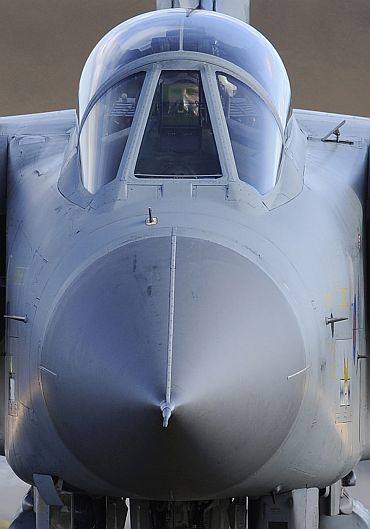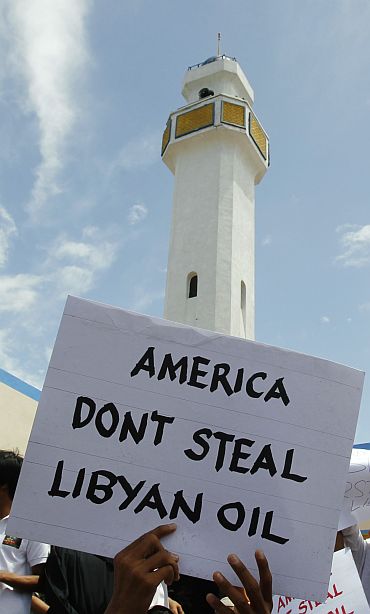'There have been vague answers from Western leaders to the question as to Gaddafi's removal is one of the objectives of the military action. While the Americans have been somewhat vehement in their denial, the British have not been. While denying that Gaddafi is a direct target, the British do not rule out the possibility of his becoming an indirect victim of the air and missile strikes.'
In an article 'This is war. Skip the hand-wringing about assassinations' published in August 2003, John Yoo, professor of law at the University of California, Berkeley's School of Law concludes: 'No law prohibits the targetting of specific enemy leaders in war. Assassination is different: The murder of a public figure for political reasons.'
'The murders of Martin Luther King Jr, John F Kennedy, and Abraham Lincoln were assassinations. By contrast, the killing of the enemy in combat is protected by the laws of war. As Hugo Grotius, the father of international law observed in 1646, "It is permissible to kill an enemy. Legitimate military targets include not just foot soldiers, but the command and control structure of an enemy's military, leading up to its commander-in-chief."'
There are, however, great risks and enormous moral issues inherent in the use of assassination as an adjunct to foreign policy and to put it in simple language; shouldn't the world's leading democracies be better than this?







